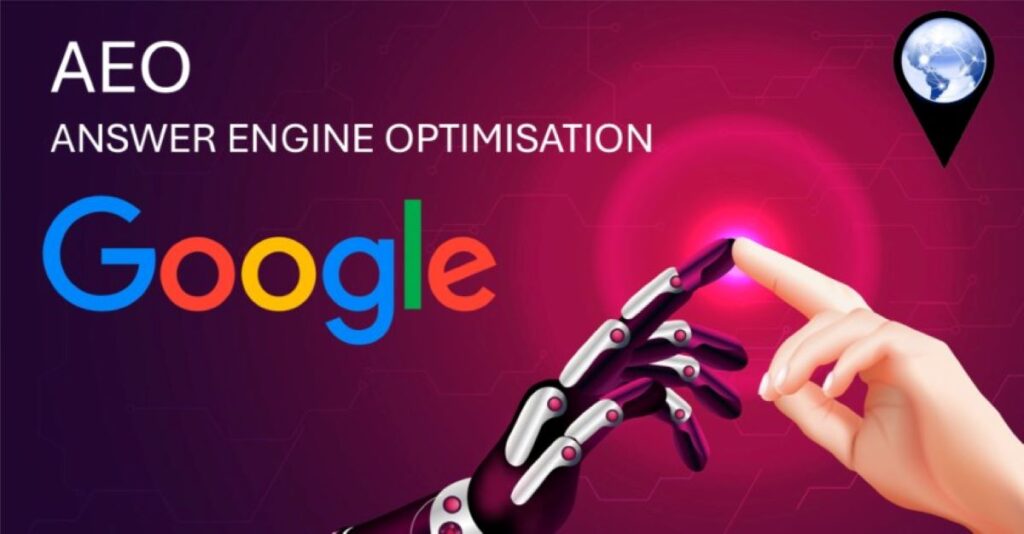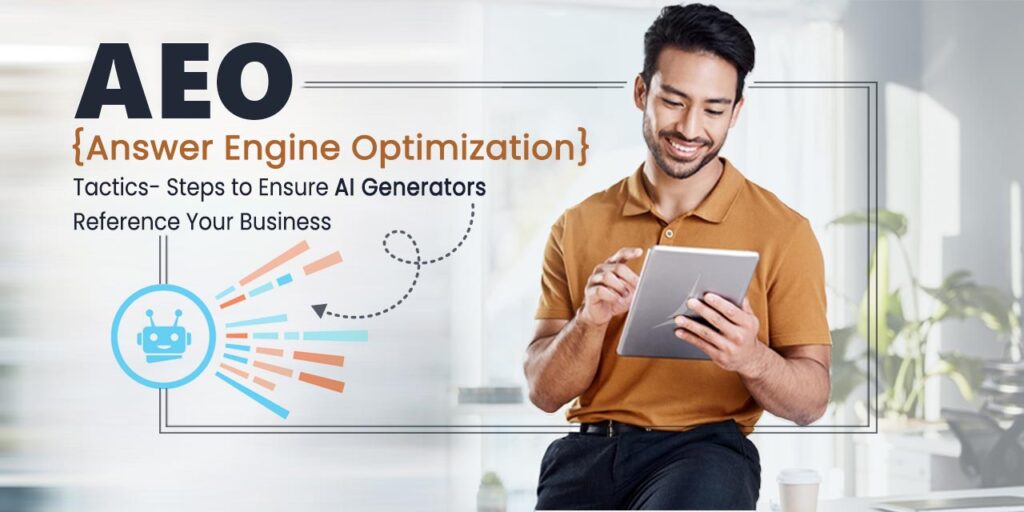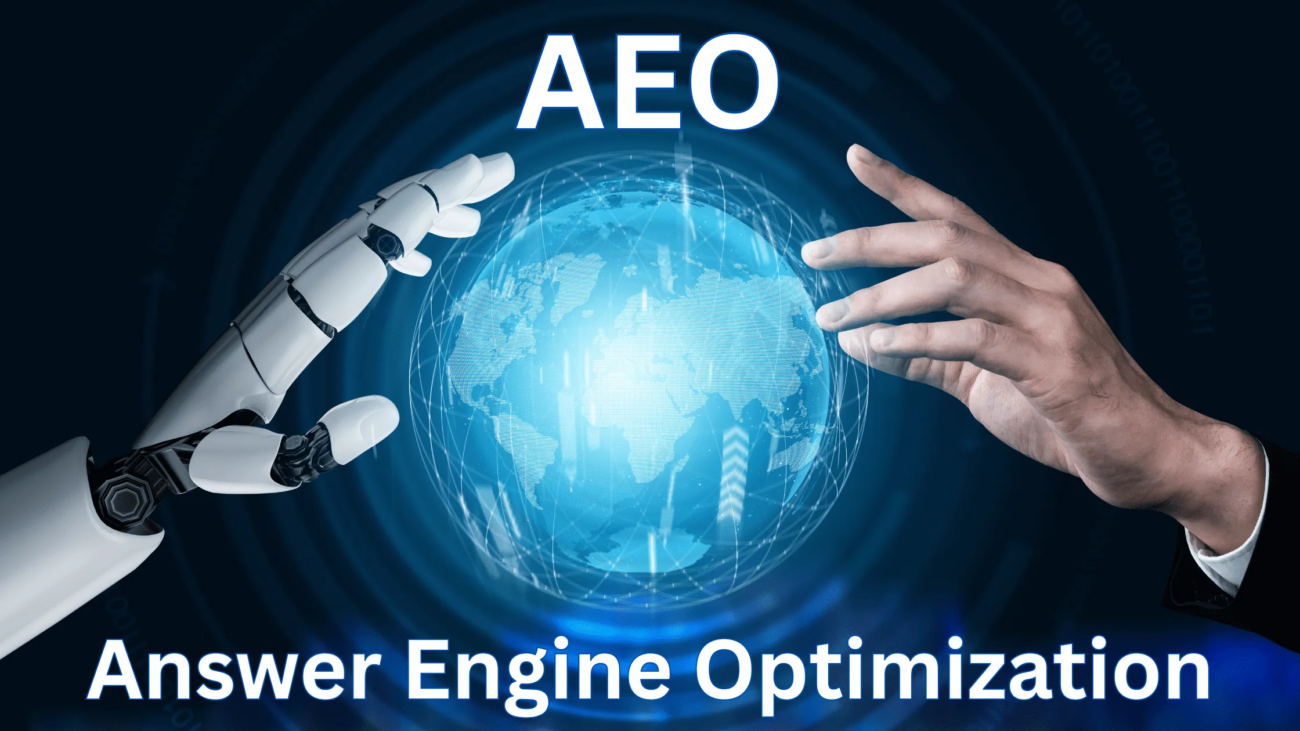What Are GEO and AEO Agencies?
GEO agencies specialize in Generative Engine Optimization, whilst AEO agencies focus on Answer Engine Optimization—both represent cutting-edge AI-driven search optimization strategies reshaping how businesses approach digital visibility.
The search landscape has fundamentally shifted. Traditional search engines now incorporate AI-powered features that synthesize information, generate comprehensive responses, and deliver instant answers. This transformation demands specialized expertise beyond conventional SEO practices.
What Does a GEO Agency Do?
A GEO agency optimizes your content for generative AI engines that compile information from multiple sources into detailed, synthesized responses. These agencies help businesses capture visibility when users seek comprehensive research, strategic insights, or complex problem-solving support.
What Does an AEO Agency Do?
An AEO agency crafts content specifically for answer engines—optimizing for featured snippets, voice search results, and AI-generated quick answers. Their expertise lies in securing those coveted “position zero” placements that directly answer user queries.
Why this matters now:
- AI search features dominate user experiences across Google, Bing, and emerging platforms
- Voice assistants and chatbots increasingly mediate information discovery
- Users expect immediate, accurate answers alongside comprehensive research options
This article clarifies the GEO agency vs AEO agency distinction, helping you determine which AI SEO strategy—or combination—aligns with your business goals, target audience behaviour, and competitive positioning in the evolving search ecosystem.
How Do GEO Agencies Optimize Content for Generative AI Engines?
Generative Engine Optimisation agencies specialise in preparing content for AI systems like ChatGPT, Perplexity, and Google’s AI Overviews that synthesize information from multiple sources into comprehensive responses. These agencies help businesses position their content as authoritative reference material that generative AI engines cite when answering complex queries.
The GEO agency definition centres on creating content that AI models recognize as credible, detailed, and worthy of inclusion in synthesized answers. Unlike traditional SEO that targets keyword rankings, GEO focuses on becoming a trusted source within AI-generated responses.
Key Implementation Techniques
Authoritative content creation forms the foundation of GEO strategies. Agencies develop in-depth articles demonstrating clear expertise through:
- Original research data and case studies
- Expert author credentials and bylines
- Detailed explanations with supporting evidence
- Citations from peer-reviewed sources
Structured data schema implementation helps generative AI engines understand and extract information efficiently. GEO agencies apply schema markup for articles, FAQs, how-to guides, and professional credentials to signal content authority.
Multi-source integration requires content that references and synthesizes information from credible external sources. GEO agencies build content ecosystems where detailed analysis connects related topics, creating comprehensive knowledge bases that AI engines prefer when generating nuanced responses. This approach positions clients as go-to authorities within their industry verticals.
What Techniques Do AEO Agencies Use to Optimize Content for Answer Engines?
Answer Engine Optimization (AEO) agencies specialize in crafting content that appears as direct answers in featured snippets, voice search results, and AI-generated summaries. These AEO agency specialists focus on delivering concise, immediately actionable information that fits the strict format requirements of answer engines.
Snippet Optimization
The primary technique involves creating snippet optimization through precise answer formatting. AEO agencies structure responses to fit within 40-60 words for featured snippets and 20-30 words for voice search results. Each answer directly addresses the query in the opening sentence, eliminating unnecessary context or preamble.
Content Restructuring
Content restructuring forms another core strategy. AEO agencies audit existing content to identify high-impact questions with achievable competition levels. They extract key information and reformat it into:
- Numbered lists for step-by-step processes
- Bullet points for feature comparisons or quick facts
- Definition paragraphs that answer “what is” queries
- Table formats for data-heavy comparisons
This process often involves advanced techniques such as chunk-level content optimization which significantly enhance search visibility.
Voice-Friendly Content Formatting
Voice-friendly content formatting requires specific attention to natural language patterns. AEO agencies optimize for conversational queries by incorporating question phrases exactly as users speak them. They prioritize simple sentence structures, active voice, and vocabulary that voice assistants can easily parse and deliver. This aligns with the best practices of voice search optimization.
The strategic focus remains on capturing quick-answer queries where users seek specific facts, simple how-to guidance, or straightforward solutions rather than comprehensive research.
When Should Businesses Choose a GEO Agency Over an AEO Agency?
Businesses benefit most from a GEO agency when their audience requires comprehensive research and detailed insights SEO rather than quick answers. This approach suits long-term authority building in competitive markets where establishing expertise drives customer trust and conversions.
Industries requiring GEO expertise:
- B2B technology and enterprise software companies explaining complex queries optimization around implementation strategies
- Healthcare and medical practices demonstrating clinical expertise through multi-source evidence synthesis
- Financial services firms providing strategic investment guidance requiring authoritative analysis
- Legal consultancies addressing nuanced regulatory questions demanding detailed interpretation
- Research institutions and educational platforms building thought leadership through comprehensive content
GEO agencies excel when your business needs to position itself as the definitive source for complex topics. The strategy works particularly well when purchase decisions involve lengthy research phases, multiple stakeholders, or significant investment. Content optimized through GEO supports AI engines in synthesizing your expertise alongside complementary sources, creating visibility in detailed AI-generated responses rather than simple snippet placements.

When is it More Beneficial for Businesses to Hire an AEO Agency Instead?
AEO agencies deliver the fastest results when your business targets quick answer optimization and featured snippets SEO opportunities. Businesses seeking immediate visibility through direct answer placements benefit most from this approach.
Ideal scenarios for hiring an AEO agency include:
- Local service providers answering common customer questions (“how much does plumbing repair cost?”)
- E-commerce brands targeting product-specific queries (“best running shoes for flat feet”)
- Healthcare practices providing quick medical information suitable for voice assistants
- SaaS companies capturing “how to” queries with step-by-step guides
AEO excels when your audience seeks straightforward answers rather than comprehensive research. Businesses with limited budgets needing measurable traffic gains within 3-6 months find AEO particularly cost-effective, as snippet placements generate immediate click-through rates without requiring extensive content libraries.
Can Businesses Benefit from Combining Both GEO and AEO Strategies?
Yes, businesses gain maximum visibility by implementing a hybrid SEO strategy that addresses both quick-answer seekers and deep-research users. This dual approach captures traffic across different AI search platforms and user intent stages.
A hybrid SEO strategy delivers comprehensive coverage:
- Immediate wins through AEO’s featured snippet placements for high-volume question queries
- Long-term authority via GEO’s in-depth content that generative AI engines reference for complex topics
- Multi-platform visibility across traditional search, voice assistants, and AI chatbots
A software company might use AEO to capture “what is project management software” snippets whilst deploying GEO for comprehensive guides on “enterprise project management implementation strategies.” This combination attracts users at different decision-making stages.
E-commerce brands particularly benefit from this approach—AEO answers product specification queries whilst GEO content positions them as industry authorities through detailed buying guides and comparison analyses. The integrated strategy ensures visibility whether users need quick facts or extensive research support. Read more about how custom development enhances performance and UX.
Which Tools are Commonly Used by GEO and AEO Agencies?
Both GEO and AEO agencies rely on specialized platforms to execute their optimization strategies effectively.
Tools Used by GEO and AEO Agencies
Here are some commonly used tools by both GEO and AEO agencies:
- AI content generators like ChatGPT and Jasper
- Keyword analysis tools such as SEMrush, Ahrefs, and Moz
- Schema markup generators like Schema.org and Google’s Structured Data Markup Helper
- Additional tools such as:
- AlsoAsked for question mapping
- AnswerThePublic for query discovery
- Clearscope for content optimization
- Surfer SEO for AI-friendly content scoring
How These Tools Help GEO and AEO Agencies
Here’s how these tools assist GEO and AEO agencies in their strategies:
- AI content generators help agencies create comprehensive content that meets generative AI requirements whilst maintaining natural language flow.
- Keyword analysis tools provide essential data for identifying question-based queries and tracking featured snippet opportunities.
- Schema markup generators support both strategies by creating machine-readable content structures.
How Can Businesses Decide Between a GEO or AEO Agency?
Choosing between GEO and AEO agencies starts with clarifying your primary business objectives and timeline expectations. If you’re building long-term authority in a complex industry, a GEO agency delivers the depth and expertise signals needed for generative AI engines.
Your decision hinges on three critical factors:
1. Timeline and ROI Expectations
- Need visibility within 3-6 months? AEO agencies excel at capturing featured snippets and voice search results quickly
- Planning for 12+ month authority building? GEO agencies create comprehensive content that establishes industry leadership

2. Audience Search Behaviour
- Users asking specific “how to” or “what is” questions benefit from AEO’s concise answer formats
- Audiences researching complex topics or comparing solutions require GEO’s multi-layered content approach
3. Industry Complexity
- Technical fields like healthcare, finance, or B2B SaaS demand GEO’s authoritative, detailed content
- Service-based businesses answering common customer questions thrive with AEO optimization
Budget allocation matters too. AEO typically requires less initial investment for faster returns, whilst GEO demands sustained content development for compounding benefits.
The smartest approach? Many businesses engage both strategies simultaneously—using AEO for immediate traffic wins whilst building GEO foundations for lasting competitive advantage. Assess where your prospects search, what information depth they need, and whether you’re chasing quick wins or market dominance.
FAQs About GEO and AEO Agencies
A GEO (Generative Engine Optimization) agency optimizes content for AI systems that synthesize information from multiple sources into comprehensive responses, positioning businesses as authoritative references.
2. What is an AEO agency?
An AEO (Answer Engine Optimization) agency focuses on crafting content for answer engines, featured snippets, and voice search, targeting “position zero” placements with concise, direct answers.
3. How do GEO agencies optimize content?
They create authoritative, in-depth content with original research, expert credentials, structured data, and multi-source references to ensure AI engines cite it in synthesized responses.
4. What techniques do AEO agencies use?
AEO agencies optimize snippet formatting, restructure content into lists, tables, or definition paragraphs, and format content for voice search to deliver immediate, concise answers.
5. When should a business hire a GEO agency?
GEO agencies are ideal for industries requiring detailed research and complex insights, such as B2B technology, healthcare, financial services, legal consultancies, and research institutions.
6. When is an AEO agency more beneficial?
AEO is better for businesses seeking quick-answer optimization, such as local services, e-commerce product queries, quick medical information, or SaaS “how-to” guides.
7. Can businesses use both GEO and AEO strategies?
Yes. A hybrid strategy captures immediate traffic through AEO snippets while building long-term authority with GEO’s comprehensive content for generative AI engines.
8. What are the main tools GEO and AEO agencies use?
Common tools include AI content generators (ChatGPT, Jasper), keyword research platforms (SEMrush, Ahrefs, Moz), schema markup generators, and content optimization tools (Clearscope, Surfer SEO, AlsoAsked, AnswerThePublic).
9. How do these tools support GEO and AEO strategies?
They assist in generating AI-friendly content, identifying question-based queries, structuring content for machines, and scoring content for search optimization.
10. How should businesses decide between GEO and AEO agencies?
Decide based on timeline, ROI expectations, audience search behavior, and industry complexity. AEO delivers faster snippet results; GEO builds long-term authority in detailed, competitive niches.

